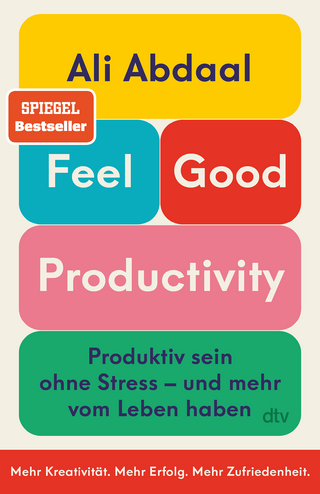
Free Will and the Brain
Cambridge University Press (Verlag)
978-1-108-44930-4 (ISBN)
Neuroscientific evidence has educated us in the ways in which the brain mediates our thought and behavior and, therefore, forced us to critically examine how we conceive of free will. This volume, featuring contributions from an international and interdisciplinary group of distinguished researchers and scholars, explores how our increasing knowledge of the brain can elucidate the concept of the will and whether or to what extent it is free. It also examines how brain science can inform our normative judgments of moral and criminal responsibility for our actions. Some chapters point out the different respects in which mental disorders can compromise the will and others show how different forms of neuromodulation can reveal the neural underpinning of the mental capacities associated with the will and can restore or enhance them when they are impaired.
Walter Glannon is Professor of Philosophy at the University of Calgary. His research interests are primarily in the areas of bioethics and neuroethics, and he has published on free will and moral and criminal responsibility, with a focus on how cognitive and clinical neuroscience has influenced how we conceive of and assess these concepts and associated practices. His publications include Brain, Body and Mind: Neuroethics with a Human Face (2011), Bioethics and the Brain (2007) and Biomedical Ethics (2005). In 2010 he was the recipient of a grant from the John Templeton Foundation for the project 'Diminishing and Enhancing Free Will'. Free Will and the Brain is the product of this project.
Part I. Introduction: 1. Free will in light of neuroscience Walter Glannon; Part II. Conceptual Issues: 2. Is free will an observer-based concept rather than a brain-based one? A critical neuroepistemological account Georg Northoff; 3. Evolution, dissolution and the neuroscience of the will Grant Gillett; 4. The experience of free will and the experience of agency: an error-prone, reconstructive process Matthis Synofzik, Gottfried Vosgerau and Axel Lindner; Part III. Mental Capacities and Disorders of the Will: 5. Being free by losing control: what obsessive-compulsive disorder can tell us about free will Sanneke de Haan, Erik Rietveld and Damiaan Denys; 6. Psychopathy and free will from a philosophical and cognitive neuroscience perspective Farah Focquaert, Andrea L. Glenn and Adrian Raine; 7. How mental disorders can compromise the will Gerben Meynen; 8. Are addicted individuals responsible for their behavior? Wayne Hall and Adrian Carter; 9. Assessment and modification of free will via scientific techniques: two challenges Nicole A. Vincent; Part IV. Neural Circuitry and Modification of the Will: 10. Implications of functional neurosurgery and deep-brain stimulation for free will and decision-making Nir Lipsman and Andres M. Lozano; 11. Reducing, restoring, or enhancing autonomy with neuromodulation techniques Maartje Schermer; Part V. Legal Implications of Neuroscience: 12. Neurobiology collides with moral and criminal responsibility: the result is double vision Steven E. Hyman; 13. Neuroscience, free will and criminal responsibility Stephen J. Morse.
| Erscheinungsdatum | 14.03.2018 |
|---|---|
| Zusatzinfo | Worked examples or Exercises; 2 Halftones, unspecified; 2 Halftones, black and white |
| Verlagsort | Cambridge |
| Sprache | englisch |
| Maße | 153 x 230 mm |
| Gewicht | 480 g |
| Themenwelt | Geisteswissenschaften ► Psychologie |
| Naturwissenschaften ► Biologie ► Humanbiologie | |
| Naturwissenschaften ► Biologie ► Zoologie | |
| ISBN-10 | 1-108-44930-1 / 1108449301 |
| ISBN-13 | 978-1-108-44930-4 / 9781108449304 |
| Zustand | Neuware |
| Haben Sie eine Frage zum Produkt? |
aus dem Bereich


